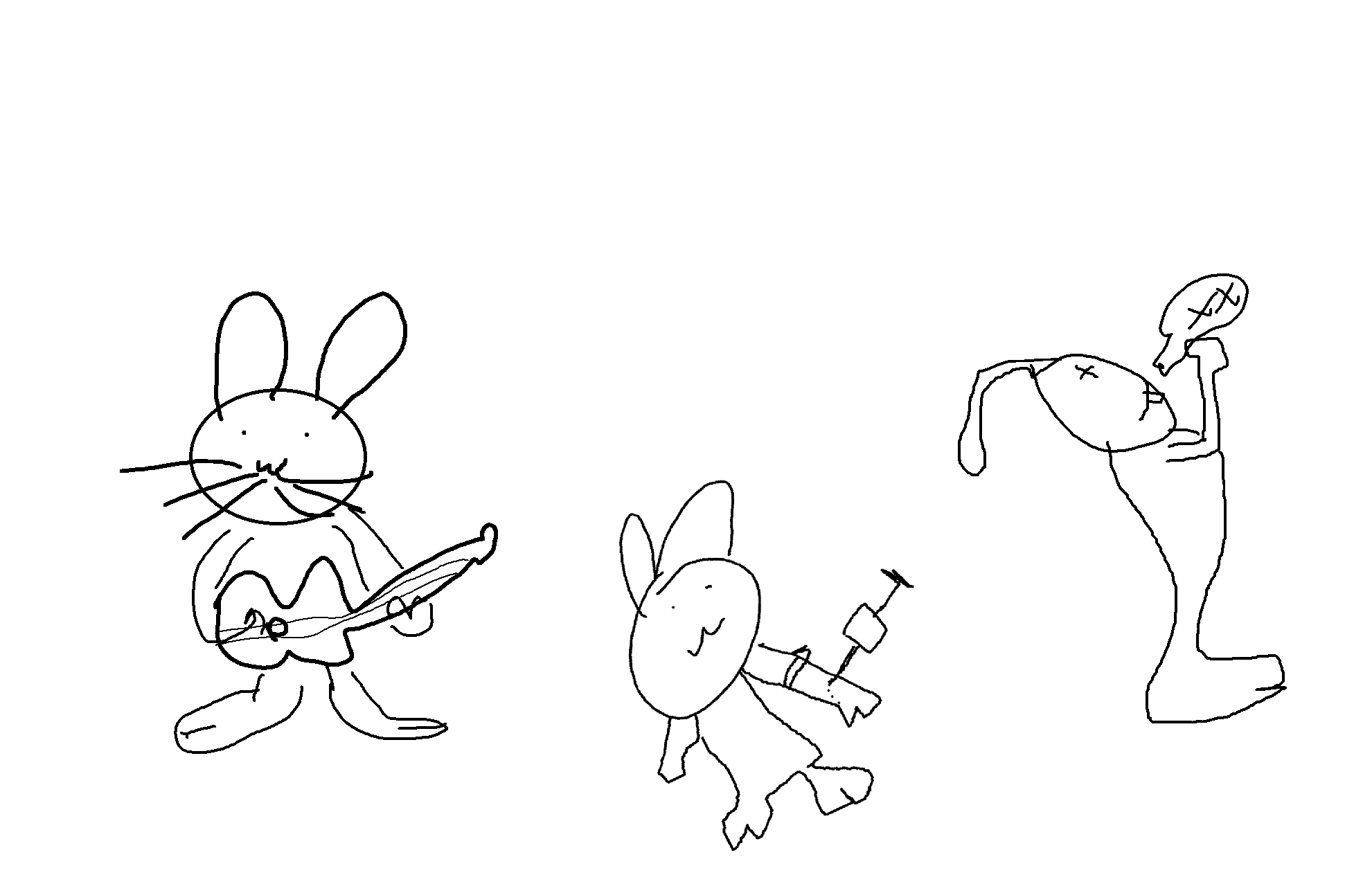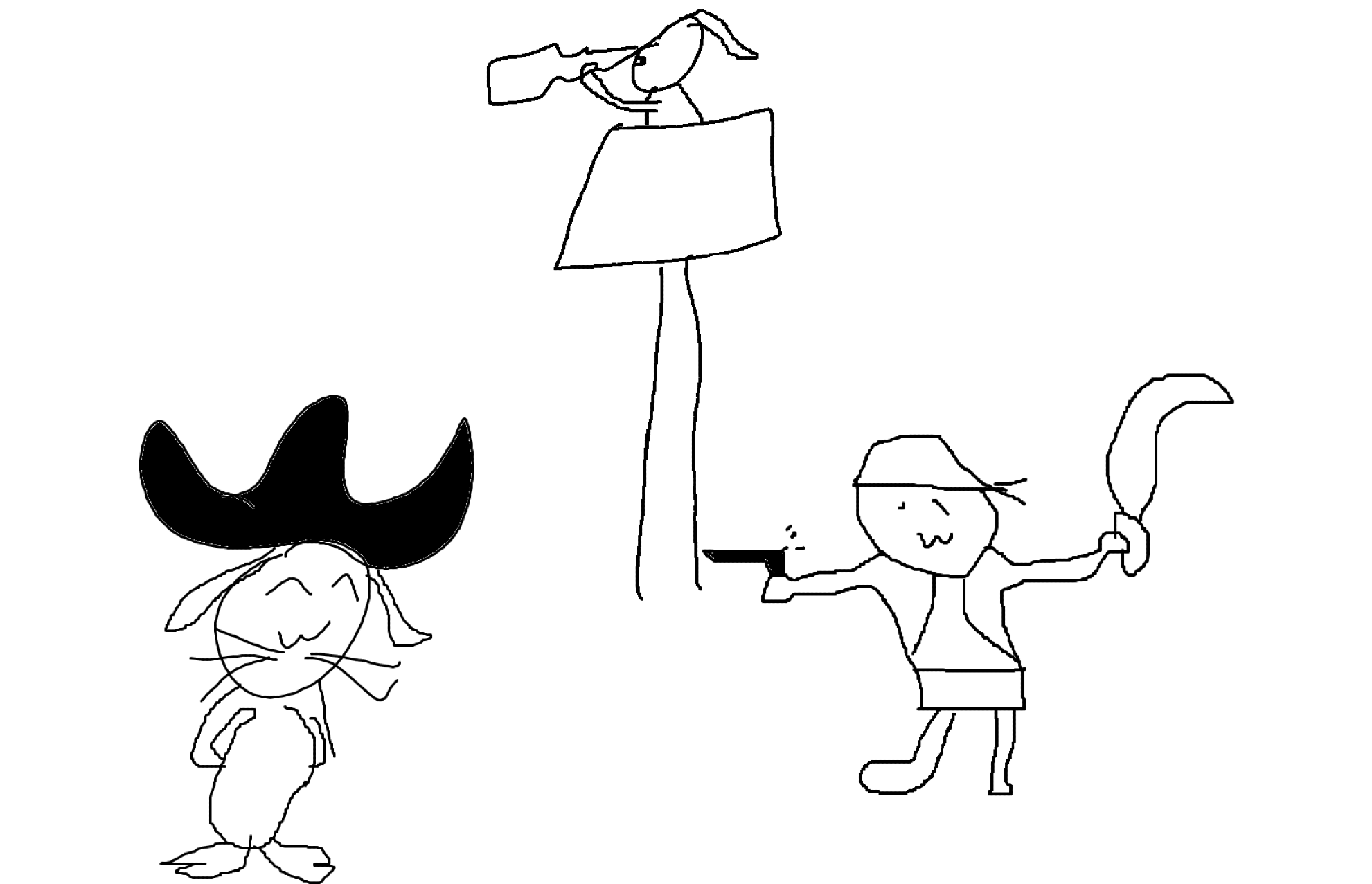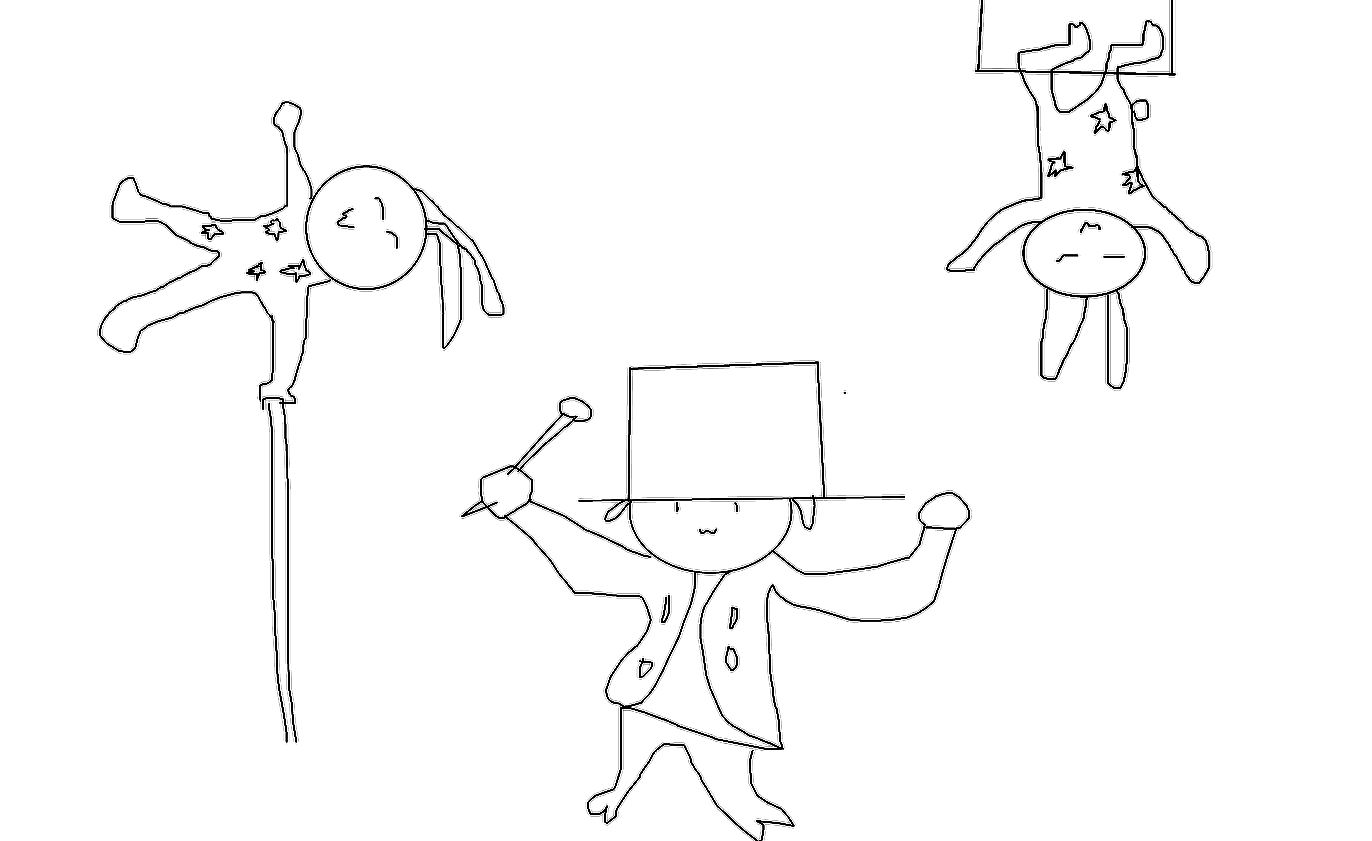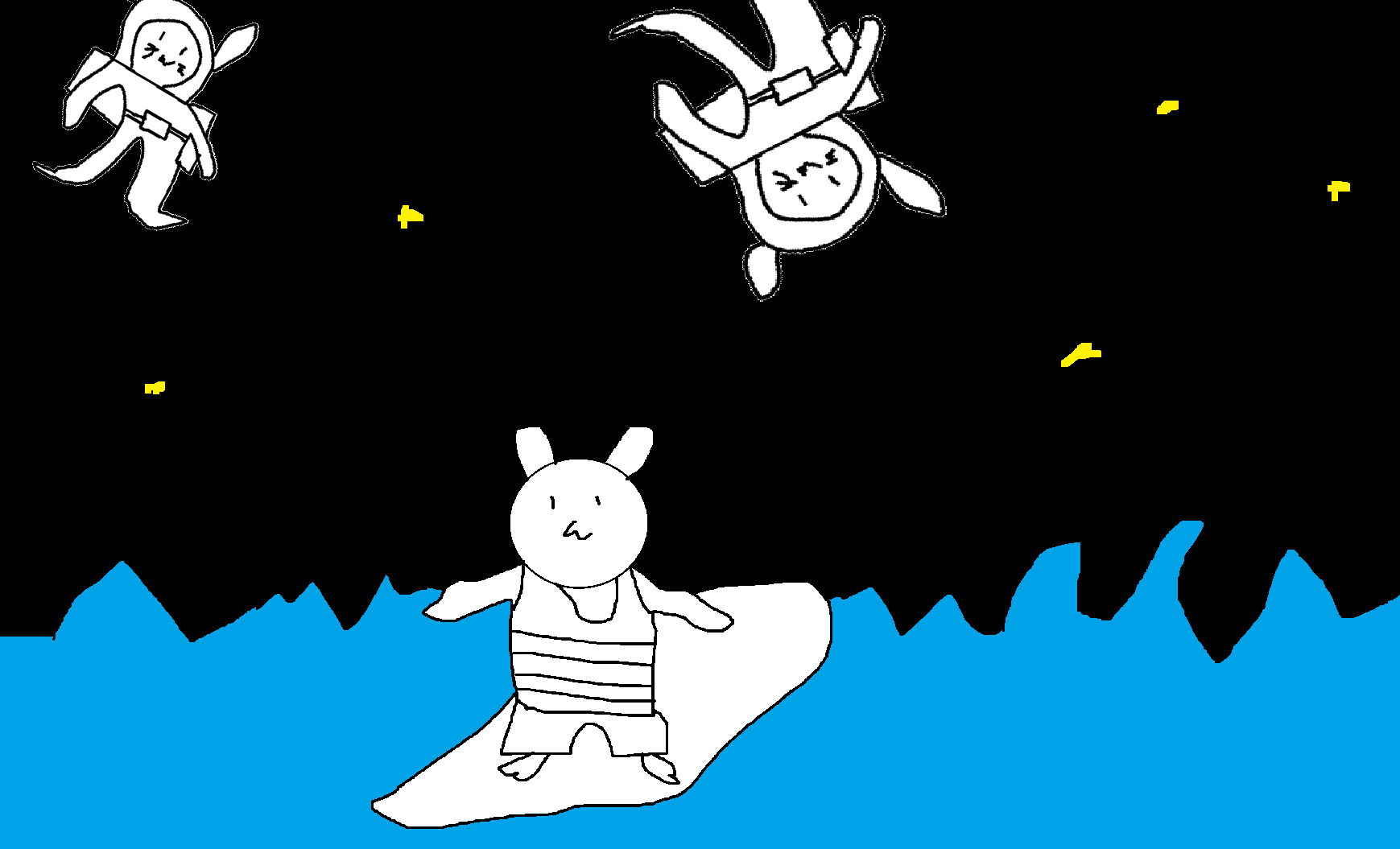On Pat the Bunny (Musician)
I first encountered the work of Patrick Schneeweis - "Pat the Bunny" - in college. This was in about 2008 or so, and I had a burned CDR of the Johnny Hobo and the Freight Trains side of "Love Songs for the Apocalypse." I don't remember where I got the songs - somewhere online no doubt. It wasn't my first exposure to folk punk - I'd heard AJJ, and earlier than that, Against Me!, but there was something about it that seemed even rawer, a nakedness to the lyrics that grabbed my attention right away. The singer was talking very openly about drug and alcohol abuse, not gussied up in metaphor (though with a clear natch for a turn of phrase), and his voice was hoarse, like someone who'd been living pretty rough. The music seemed like an open wound, still dripping. I liked it, and it made my car CD rotations, but it didn't change my life.
I didn't think much more about it until a few years later when I went with my friend Wallace to the 2011 "Rainbow Gathering" in Washington. To those who are unfamiliar, the Rainbow Gathering is a yearly counter-cultural gathering of hippies, gutter punks, bikers, and other assorted freaks. It attracts a lot of young transients - I sometimes call them "train kids," though only some of them hop trains. You've seen them in cities, with backpacks and patches of crust bands and dogs with bandanas, begging for change. As we wandered the Gathering, we saw quite a few of these kids. Many of them had acoustic guitars with them, and were playing songs I'd heard before.
They were playing Johnny Hobo songs.
I began to get the sense that I was witnessing something significant; an entire cultural canon, something as important as Bob Dylan or Woody Guthrie, though completely underground and hidden from the mainstream. These kids all knew the songs, and they sang them like they meant something. Like they'd been written just for that kid. It was both astounding, but also made me feel a little weird. I wondered what kind of weight that would be to carry, to be the writer of those songs.
Patrick Schneeweis, then going by his stage name "Pat the Bunny," went on to start several additional bands - most notably "The Wingnut Dishwasher's Union" and "Ramshackle Glory." I saw "Ramshackle" play a few times, including at their final public performance at a folk punk festival in Indiana. A few months earlier, Schneeweis had publicly announced his retirement from music. Though he wasn't forthright about it, I couldn't help but wonder if that same feeling of weirdness that I got at the Rainbow Gathering was part of it. I couldn't imagine the pressure of being this icon to this population. They loved him like a poet, a prophet. The festival (Plan-It-X Fest X) cost about 50 bucks, and on my way in I noticed some people on their way to the festival begging for gas money. I mentioned this to someone I met inside - they had money for the ticket, I said, but not money for the gas. "I think it's worth noting how big a role trauma plays for the people here" he said to me. This little scene was their respite, a lifeline, and Pat was at the center of it, whether he liked it or not.
9 years later, he is back with some new music. I decided to listen to his discography, to see if I could really "get" it.

Johnny Hobo and the Freight Trains
I don't know where Pat stands on this these days, some of the first music he ever put out when he was something like 18, but for awhile it seemed like he had a fairly ambivalent relationship to it. You were not allowed to play Johnny Hobo songs at Plan-It-X Fest. There was a sign posted about it. I can imagine why, being as this is music recorded in the throes of drug and alcohol addiction, a snapshot of yourself as probably the shittiest type of guy that you ever were.
Still. The opening of "New Mexico Song" with it's yelled "123 123" into strummed guitar chords and a harmonica line, with muffled thumps serving as percussion, then the line "As he lights an American Spirit, he asks how I can smoke such shit?" It's easy for me to see why this became iconic. It's grungy sounding, with shoe-string recording quality; clearly contemporary but reminiscent of classic Americana, and if you have any experience at all of sitting on the curb in a parking lot, chain smoking while you wait for a Greyhound bus, it probably strikes at least some kind of familiar chord for you. I think it taps into a vein of American culture that was previously untapped. There was other stuff that was sort of like this, of course - Rosa, This Bike is A Pipe Bomb, and Defiance Ohio all come to mind. But there's a certain directness here, a way that the songs give you what seems to be an unobstructed view into the life of a rambling young drug addict, that spoke for something that maybe hadn't quite been given a voice yet. A new generation of drifters, perhaps, teetering through Bush era cynicism and the chemical afflictions of the opiate crisis. Other bands had the anarchist politics and the merging of folk and punk, but they didn't sing about "railing pills in the park," or God selling acid, or drinking yourself to sleep. And while I'm sure plenty of this new generation of train hoppers would have liked to see the government dismantled, their day to day struggles were those of spanging and copping, withdrawal and overdose, hunting for snipe cigarettes and a dry place to sleep.
A few other points in its favor. The songs are fairly simple, so they can be easily learned by a novice guitar player. They are also catchy as hell. This is something that I noticed working my way through Pat's discography, that only got more pronounced as I went along. Like most of the best punk bands, buried under the sound and fury are some hella sharp pop sensibilities.

Wingnut Dishwasher's Union
Following the discography as provided by Wikipedia, the next two, Toward a World Without Dishwashers and Never Trust a Man Who plays Guitar seem like demos to me, or at least the acoustic versions that would later be more fully realized. Right off the bat, a somewhat notable difference between this and the earlier Johnny Hobo material is Pat's voice, which is considerably less hoarse, something that continues to progress throughout his recorded material. The alcohol references are still there, but I think here is where the other big songwriting preoccupation becomes fully formed, which is, how the fuck can we actually have anarchism? He seems to be genuinely grappling with this idea. It's right there in the band name: the recurring symbol of washing dishes. This is a reference to an oft repeated quote that goes something like, "everyone wants a revolution but no one wants to do the dishes." In other words, no one wants to do the actual work. I've heard something similar about what happened to some of the communes in the 1960s, that they fell apart because only a few people would end up doing all the labor. Of course, people always fucking say that about any form of social change, whether socialism, civil rights, suffrage, your pick. "Yeah, it'd be great, but you know. It's just not realistic. It's not according to human nature."
These are the sorts of questions that Pat actively grapples with in this material. I think this sets him apart from some artists with similar political tilts, but who are more prone to chanting slogans or political catch-phrases - Pat almost always seems to be asking questions.
So after one and a half acoustic albums, and then a half album of a full band, but one that sounds like it was recorded in the locker room at a train station, we get Burn the Earth, Leave it Behind. This is probably the first time I've ever actually sat down and listened to this thing the whole way through, but I get it, and I think it can legitimately be called a punk rock classic. The music sounds good here. It's dynamic - there are different sections to different songs, the instrumentation is varied, and there's a certain almost theatrical quality to it. The core instrumentation is not that radical for folk punk of the time (guitars and drums, horns and an accordion, similar to Pat's future tour mates the Taxpayers), but listening through I noticed a lot of little interesting touches - a theremin on "Picking Sides," little hand claps on "Proudhon in Manhattan" that usher in the sudden intensity of the full band kicking in.
Also, "Fuck Shit Up!" has gotta be a Blatz reference, right? Blatz fucking rules.

Ramshackle Glory
Pat's next project, Ramshackle Glory, released several different albums over a 6 year period. (Note: I am starting my write-through with the first full band project, Live the Dream, skipping a few earlier projects he recorded on his own. This is because I got tired of listening to Pat solo projects. Sue me!) The "lore" here is that after two projects done in the throes of heroin addiction and alcoholism, Pat finally got sober and started this band. Musically and thematically it builds very much on the last Wingnut Dishwashers Union album, with the added theme of newfound sobriety. Just as the Johnny Hobo era seemed to capture the attention of a community beset by booze and drug addiction, Ramshackle seems to have provided a sort of light at the end of the tunnel; or at least a living breathing success story, proof that there was something else, and that you could drag yourself out of the muck. He presents it here with his typical radical vulnerability, in all of its shaky infancy, all new born deer taking its first quivering steps.
Musically, it's a continued evolution, building from the same core sound of instruments, but figuring out how to merge it together in a way that feels organic and intuitive - using the banjo and accordion to create something of a wall of sound effect. There are still a lot of the little flourishes and deviations that caught my ear like in the last album too - harmonies and instrumental flourishes (piano, violin), that little vocal stutter on "More About Alcoholism," multiple tempo changes on "From Here to Utopia."
The centerpiece is "Your Heart is a Muscle The Size of Your Fist" which has joined the Black Flag logo as one of the most common punk tattoos, showing not just a liking for a band, but an allegiance to an entire community, ethos, and way of life. One of the things that strikes me about the song is that it's essentially a list of people, implicitly making the point that, we don't live as islands, we are all connected and indebted to each other. It reminds me of reading old Cometbuses, each of which seemed like it contained its own little universe of punks and activists and coffee shop dwellers.
Out of all the Pat projects, Who Are Your Friends Gonna Be, the next Ramshackle full length, feels the most like a relic of its time to me. The songs are all intercut with first person accounts of people sharing stories of terrible and traumatic things that happened to them - addiction stories, stories of homelessness and sexual assault. You could make the argument that this furthers the emphasis on community and healing through disclosure, which I think is true, but to me it all feels very much of the same era as trigger warnings and Nanette. There's a certain hushed heaviness to this sort of thing that I never really liked, not even in grad school, though I agree with the general politics of it (and with all due respect to the people sharing on the record).
Shelter is a fun little side on a split - the other half is the band Ghost Mice featuring the now very cancelled Chris Clavin (the founder of Plan-It-X records who put out a lot of Pat's records and put on the festival mentioned above). The Ramshackle side sounds a little more traditionally "punk" to me than some of the other Ramshackle recordings - faster, more distortion, some kind of screamy vocals from various people who aren't Pat (Pat's more gutteral screams seem to have left the building sometime around Burn the Earth, to be replaced with more of an anguished yelp.) If I have less to say about these two records, it's because I think they're continuations of the same fundamental thesis.
One Last Big Job shows Pat moving away slightly from some of his songwriting obsessions - there's a few less explicit questions about radical politics, less visceral descriptions of addiction. It only makes sense - he'd been sober for quite a few years at that point, and had publicly mentioned that he no longer really considered himself an anarchist. Suitably, it feels more like a wrapping up of the past two decades, rather than a step forward, and for my money the best song isn't Pat singing at all, it's "Into the Wind" by longtime collaborator Nick Berger.
And that was the last we heard from Patrick, for quite awhile.

Epilogue - Friends in Real Life
This year, he put out a collaborative album with his brother and his dad under the band name "Friends in Real Life. It doesn't sound like Ramshackle Glory. It doesn't really sound like punk. The songs are folky and poppy, with playful electronic elements, and a slight tinge of psychedelia that reminds me, of all things, of the Flaming Lips.
What it sounds like to me is liberation. It is the sound of someone evolving, doing exactly what they want, freed from the shackles of expectations or the tremendous weight that must come from being a so-called hero. That's really the throughline here, that whatever he's doing, he seems to be seeking this freedom, yearning for it. When we're young, we might seek freedom in punk and reckless living; we get a little older and find freedom in sobriety and political engagement. Finally, there's a particular kind of freedom that comes from middle age and freeing yourself from some of the goddamn expectations that seem like they've built up over the years.
Of all things, too, I think there's a bit of nostalgia here as well. This, from the man who refused to play his old songs. But I think that just happens as we get older; as we survive our battles, and perhaps defeat some of our demons, we might find that we - well, I don't know if miss them is the right word exactly. But as they lose some of their power over us I think we can look at them more squarely. The cringey, awful person that we used to be, it turns out, was just a stop on the way of becoming who we are (sorry for the philosophy, I've been reading Siddartha). Even the few scattered references to substance use, such as in "Retirement Plans" seem less caustic, an acknowledgement that, yeah that was a part of him too. Eventually, I suppose, we shed it all.
My favorite allusion to this is in the song "Surf Rock Anthem (lo fi beats remix)", where Pat sings:
If I die, say it was the government
even though it wasn't them
give the kids something to believe in
I love this line, and not just for that great sequence of slant rhymes. It alludes to his anarchist past, makes it clear that he's not really that person anymore, but still has affection for at least some aspects of who he was. At one point, that belief was important to him, and still is to a lot of people, and those are both good things.
Myself, what I believe in is that it's important to create spaces and communities, sanctuaries outside of the mainstream. When I was a teenager, I was enamored of stories about bands like Black Flag and the Minutemen, who did their own goddamn thing and through doing it, built their own worlds within this larger one. As an adult, I was delighted to discover that something of this spirit was still going. The monoculture isn't really suited to meet our needs as humans, and so it is put upon us to find our own alternatives, whether that's through punk, anarchism, or just playing music with your friends and family.
In this world, I don't know if that's truly enough. But it's the thing that I believe in.